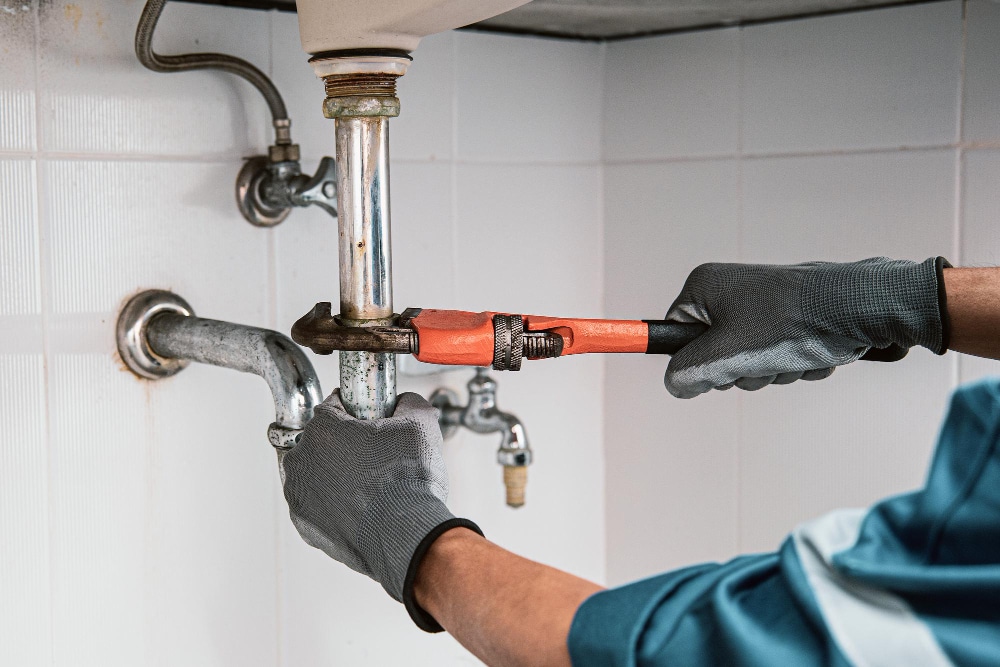
Blocked drains are more than just an inconvenience, they can cause serious problems for your home or business, such as water damage, foul odours and health hazards amongst others. In this post, we’ll cover the most common causes of blocked drains and how to prevent and fix them should the need arise.
Grease, Fat and Oil
One of the main reasons for blocked drains in the kitchen is the accumulation of grease, fat and oil from cooking. These substances can harden and stick to the pipes, reducing the water flow and creating clogs. Where possible, avoid pouring these substances down your drains and instead dispose of it another way. Regularly pouring boiling water down the sink to dissolve any build-up can help immensely, and if you have a stubborn blockage, you may need to call a licensed plumber who can rectify the problem effectively.
Soap Scum
Soap scum is another common cause of blocked drains, especially in the bathroom. Soap scum is the residue that forms when soap reacts with hard water. It can accumulate in the pipes and reduce the water flow, so to prevent it from building up you can install an aerator on your taps, which reduces the amount of hard water. Drain cleaners are also another option and can be used monthly to help dissolve any soap scum. For severe blockages it’s always best to call on a reliable plumber.
Tree Roots
Tree roots can be a major challenge for your drains, as they can penetrate the pipes and cause blockages. Tree roots are attracted to the moisture and nutrients in the pipes, and they can grow and expand, creating cracks and leaks. If you notice any signs such as slow drainage, gurgling noises or sewage backup, you should act quickly to prevent further damage and call Bell Plumbing for a drain inspection.
Coffee Grounds
Coffee grounds may seem harmless, but they can easily form clogs in your drains. Coffee grounds do not dissolve in water, and they can clump together and stick to the pipes. To avoid this issue, you should dispose of them in the bin or use them as compost.
Hair
Hair can get tangled and trapped in the pipes, creating a barrier for water flow. To prevent hair from entering your drains, you should use a drain strainer to catch any loose strands for when you wash your hair. You can also use drain cleaners or plungers to remove any existing blockages.
Sanitary Products
Sanitary products, such as tampons, pads and wipes, are not meant to be flushed down the toilet. They can swell and expand in the pipes, creating blockages and backups. These products should always be disposed of in the bin and not the toilet.
Food Waste
Food waste is another major contributor to blocked drains in the kitchen. Food waste can get stuck in the pipes and rot, causing bad smells and attracting pests. To prevent this, you should be careful about what you flush down the drain, and always use a sink strainer to catch any food particles.
Dirt and Mud
Dirt and mud can cause blockages in your outdoor drains, especially during wet seasons. Dirt and mud can wash into your drains and accumulate, reducing the water flow and causing flooding. To prevent this, you should ensure that your outdoor drains are properly covered and cleaned regularly.
Keep Your Drains Running Smoothly
Blocked drains can be a hassle, but with the right care and maintenance, you can keep your drains running smoothly. Whether it’s preventive measures or professional intervention, Bell Plumbing is here to help whenever you have problems with your drainage and plumbing systems.
